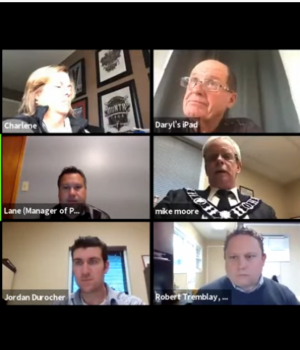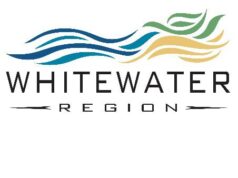The Township of Whitewater Region put out a series of frequently asked questions regarding Development charges in response to the ‘misinformation’ circulating, according to CAO Robert Trembley. We have included the entire document here.
1.What are development charges? Development charges help to recover the infrastructure costs associated with new residential and non-residential (commercial/ industrial) growth within the township.
These capital costs are in addition to costs associated with a subdivision that the developer is responsible for (i.e., internal roads, sewers, watermains, roads, sidewalks, streetlights, etc.).
Development charges help fund new infrastructure associated with water, wastewater, storm water drainage, roads, waste diversion, fire protection, library, and parks & recreation.
The Township can impose these charges via the Development Charges Act.
2.Does the Township of Whitewater Region have such a charge?
While many other townships and towns in Renfrew County already have development charges, Whitewater Region does not.
A study was completed by Watson & Associates and a Public Meeting occurred on April 7, 2021.
- Who pays such a charge?
Only developers and builders pay this charge at the time of new construction. A development charge is not applied to existing housing, businesses, or structures.
- What amount is the Township looking to charge?
The Township is recommending a $5,000 charge for new development on full water and sewer in Cobden, $4,000 for Beachburg and Haley Town Site where water services are provided, and $3,000 in all other areas.
The charges for non-residential development are per square foot as follows: township-wide $0.50, wastewater services $1.00, water services $0.50.
- Will this make the Township non-competitive for growth compared to other municipalities?
No. Arnprior, Renfrew, Petawawa, Laurentian Valley, Pembroke, McNab Braeside, Horton, Greater Madawaska all have development charges.
Whitewater Region’s proposed rates are below or competitive with these other places. The proposed rates are significantly less than the maximum that the study and Development Charges Act allows.
Moreover, charging the maximum permitted which is $20,613 in Cobden, $13,421 in Beachburg and Haley Town Site, and $12,239 in the rest of the Township could slow growth and put Whitewater Region at a competitive disadvantage compared to other areas in the county.
6.Is Whitewater Region expected to grow?
Yes. The population is expected to grow to approximately 8,500-9,000 by 2039including 722 new households.
According to the 2016 census, the Township’spopulation is 7,009. This growth will result in pressures on services andinfrastructure that can be offset by development charges.
- Do exemptions exist?
The Township is proposing that new places of worship and new bona fide farmbuildings be excluded.
Provincial legislation also excludes industrial expansions upto 50% and adding up to 2 apartments in an existing house or 1 additional unit inan apartment type building.
A granny flat/accessory unit and 1 additional unit canalso be added to a new house, semi-detached or row dwelling without adevelopment charge.
If a property is being redeveloped for example after a fire,the previous unit is recognized, and development charges are not imposed.
8.When is the charge paid and when would this take effect?
The charge is generally paid when a building permit is issued.
A by-law will be considered by Council on May 5, 2021. The charges are to take effect July 1, 2021and will be the same for a period of five years.
9.What are some projects the development charges will help pay for?
In Whitewater Region, the development charges will help fund a future water towerin Beachburg, the accessibility project and library/dressing room addition at theAstrolabe Arena, the reconstruction of Robertson Drive and Astrolabe Road to anurban standard, an expansion at the Mineview garage, improvements at the landfill,and some infrastructure studies.
It will also pay for a portion of the recent CobdenWastewater Treatment Plant upgrades.
In addition to addressing water quality issues, that project also added capacity for future growth.
- Can the money raised be used for other purposes?
The funds can only be used for the projects listed in the Development Charges Study which is updated every five years.
Funds collected for water services can onlybe used for that purpose; same goes for wastewater/sewers.
11.If a development charge is not introduced, what happens?
A source of funding for growth related infrastructure costs is not collected.
This means if projects are to go ahead, they will be paid for by taxpayers or rate payers.
It would also mean the Township would need to rely on more debt or grant fundingfrom senior levels of government.






![Kenopic/Smith Auction [Paid Ad]](https://whitewaternews.ca/wp-content/uploads/2018/10/advertising-100x75.jpeg)

